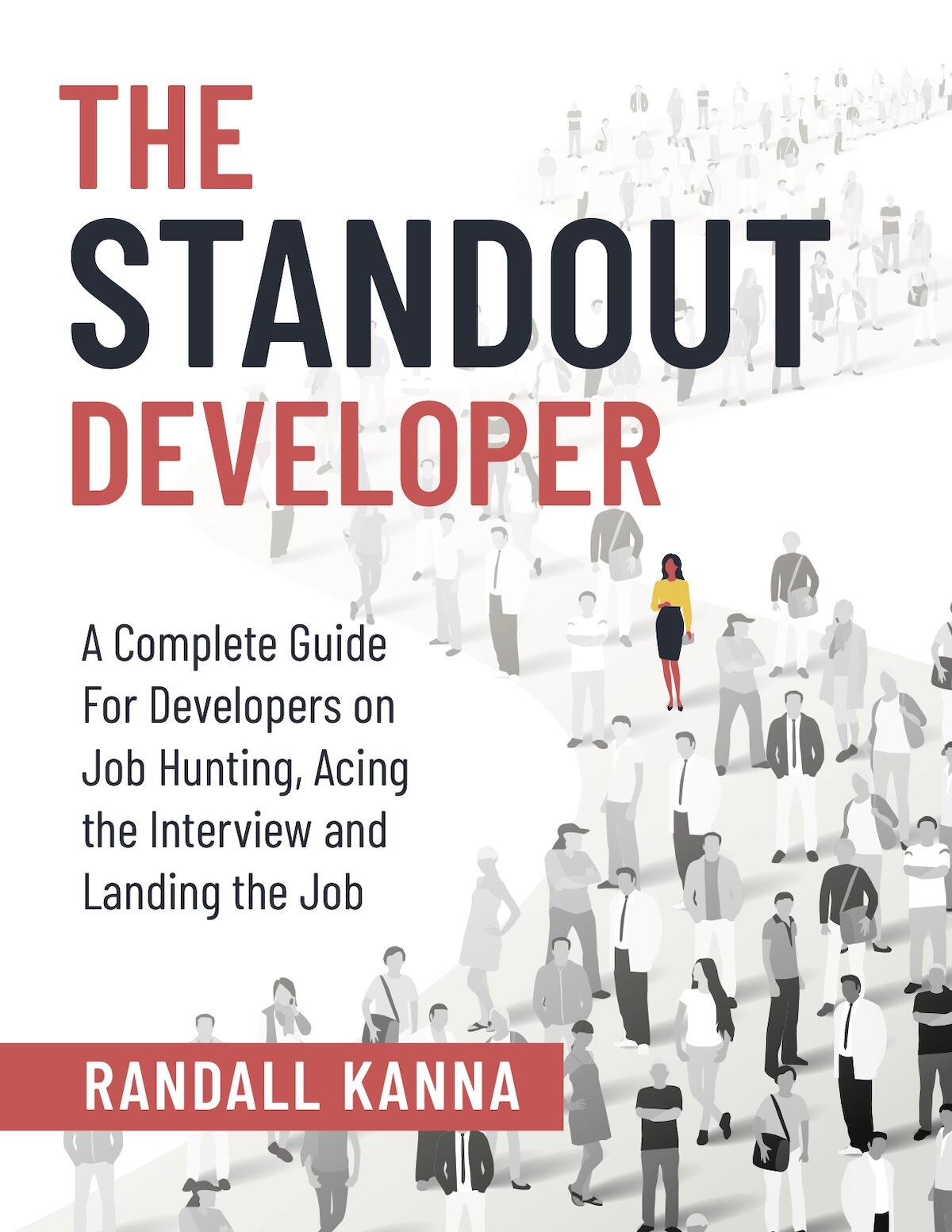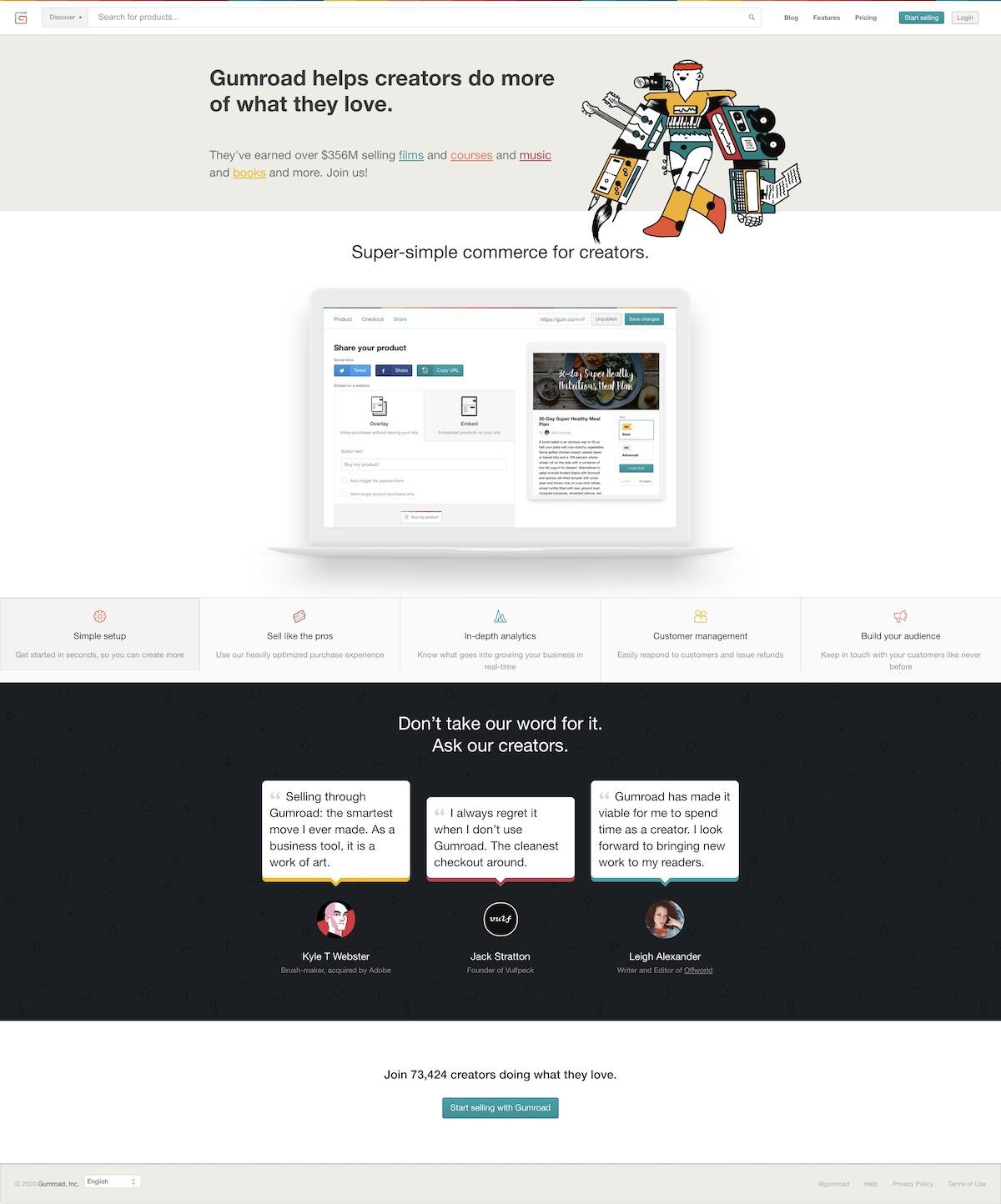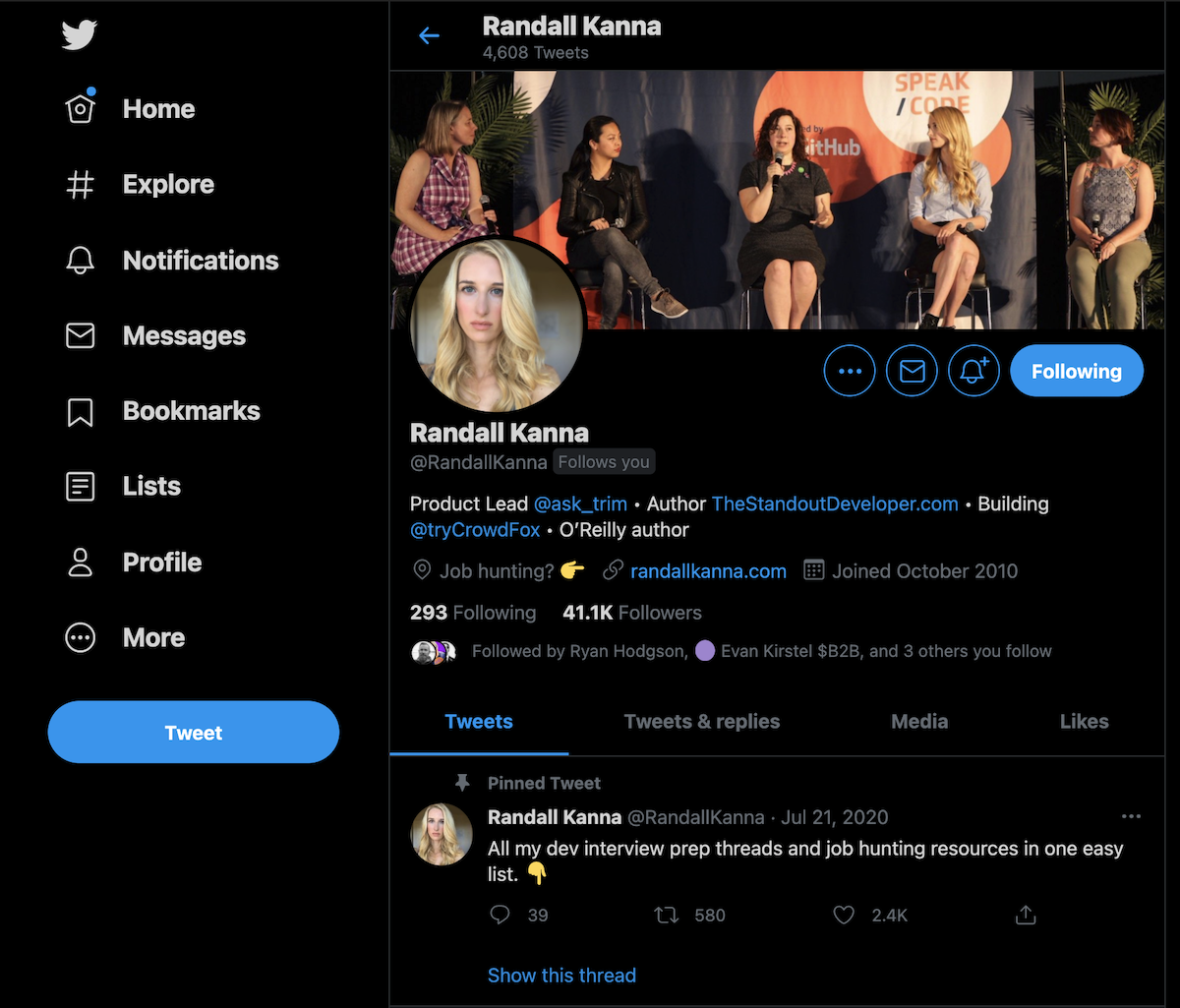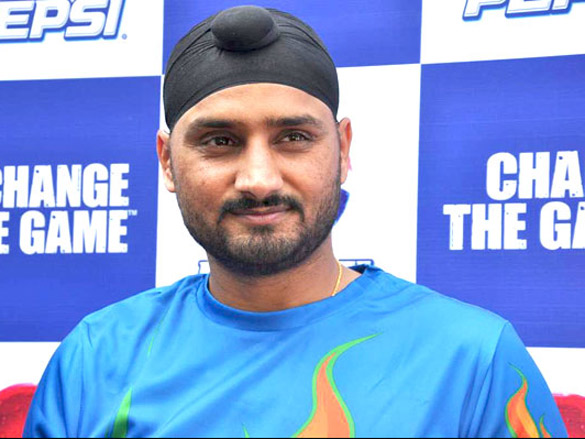
Randall Kanna, author, full stack engineer and product lead, shares her advice for developers of all levels on how to stand out in today’s job market.
How do you stand out as a developer or software engineer in today’s job market? That can be a tough question under normal circumstances. But amid the physically-distanced world of COVID-19 and a post-pandemic world of increased remote and hybrid work, it can be even more challenging to answer.
In November 2020, I had the opportunity to speak with Randall Kanna, product lead for Trim and author of the book, “The Standout Developer.” I wasn’t able to air our conversation then, but am glad I can bring it to you in this Dynamic Developer episode. Randall has an amazing story and great advice for developers of all levels.
The following is a transcript of the interview, edited for readability. You can listen to the podcast player embedded in this article, watch a video above or read a transcript of the interview below, edited for readability.
Bill Detwiler: You’re a full stack engineer with Trim. You’re also head of community for Gumroad. You’ve been a software engineer with companies like Base, Eventbrite, Ticketfly—which is now part of Pandora. That’s a lot of different experience, a lot of different companies. As a developer, because I want to talk a little bit about your new book in just a minute, what’s your area of expertise? What’s your day-to-day like at Trim right now?
Randall Kanna, Product Lead at Trim and author of “The Standout Developer”
Image: Randall Kanna
Randall Kanna: Very busy. I like to stay exceptionally busy, and this year has been no exception. I’m mostly a front end engineer. I work in some full stack. In the past, I’ve had many hats that I’ve worn at different companies. I’ve worked in blockchain, iOS, backend, front end, you name it. Right now, I’m mostly focusing on React, and we have Rails on the back end at Trim. So pretty busy. I generally work my full 9:00 to 6:00 at Trim, and then I spend my nights and weekends working for Gumroad.
SEE: Hiring Kit: Full Stack Developer (TechRepublic Premium)
Bill Detwiler: That’s a lot on your plate. I have to ask you, because this is always a hot topic with developers, what’s your favorite languages that you’re working with now, or your favorite platforms?
Randall Kanna: I’ve tried so many, and it’s almost like you go back to your first love with, and for me, that was JavaScript. And I’ve done so many different things, and it’s always come back to that, so I’m sticking with that from now on.
Bill Detwiler: Let’s talk about how you got started as a developer. What was your first developer job, and what drew you to that career versus something else?
Randall Kanna: I always loved to code. When I was 12, I was on Neopets.com, and I was selling websites online there and building little “Pirates of the Caribbean” fan guilds, which are actually still there, which are really embarrassing to look at now. And I loved it. I loved being on the computer. I loved typing. I would play typing games for hours. For context, I was homeschooled, so I had time to do that.
When I got to college, the major was just so impacted. There was just no real option to choose that as a major. I would have been in school for eight years, and it was also discouraged for women to major in computer science. And this was only not too long ago, but there was just so many men in the major that my college counselor said, “This is not going to be something that you’re going to want to do.”
After that, I didn’t major in college in computer science, and it was slightly devastating, but moved on to different things. And then after college, I could not get a job. I could not even get a call back for an interview. My degree was basically useless. It was in communications, and it was highly demoralizing to graduate college, and then you have a useless degree. I found about coding boot camps in a very roundabout way. My aunt does a lot of research, sent me an email and then I attended a bootcamp, and it all started going from there. I taught myself for about eight or nine months first before I went to the boot camp, which was probably overkill, then attended a coding bootcamp and got a job two weeks later at Ticketfly.
Bill Detwiler: It’s an empowering and a positive story that I hope gives people hope, but it’s also an extremely frustrating story because you weren’t given the chance to follow that passion because of stereotypes that still exist and existed then-
Randall Kanna: Still do.
Bill Detwiler: …in college. At one sense, it’s a detriment to the industry as a whole. It’s a detriment to society as a whole. And it’s also a huge just personal roadblock, a block that you shouldn’t have had to overcome.
Randall Kanna: Absolutely. Yeah, it was definitely very tough at the time. And I mean, it is true. The industry is very hard to be a woman engineer. It’s still difficult. Things are much better than they were five years ago, but still definitely things to improve.
Bill Detwiler: Speaking of that, I know you also have a younger sister who’s a software engineer, too. Did your love for code transfer over to her? Did she have a similar experience to you, where she was doing something else, or maybe had a degree in something else, but then decide, ‘You know, I can do this. I like code, I’m seeing what Randall’s doing, and I want to do the same thing?’
Randall Kanna: I think we were a very computer loving family growing up, and that just transitioned into, I became an engineer, and she’s even smarter than me by far. She taught herself completely how to code. She never attended a bootcamp. She didn’t have that kind of boost. She just decided she wanted to look into it, and she pitched herself to a company, which I highly recommend everyone does if you’re trying to get started engineering. Just find someone who works at a company and pitch them on yourself. And that’s what she did, and then she got an engineering job.
Bill Detwiler: Again, I hope people that listen to this see that as a story of possibility and empowerment, and they can do that. Do you think it’s easier now to do that than maybe it was when you first started? Because there’s so many companies that offer online, free or paid materials to help people learn to code.
Randall Kanna: It is easier to learn how to code than ever before, and the community is just so supportive. People want you to succeed. I think it’s the best time in the world to teach yourself how to code.
Bill Detwiler: What do you say to people maybe who are listening to this, and they’re not as technically inclined as you were? Yeah, sure, they know how to use a computer, they know how to use a smartphone, and they know what apps are things, but the thought of actually sitting down in front of a terminal or a WYSIWYG editor or whatever SDK you’re using, and typing in line after line of text, and then wondering what happens. Even if it’s object oriented, or even if you’re using low-code, no-code, which I want to get your opinions on later, there are a lot of people who may see that as a barrier. What would you say to those people who have that fear?
Randall Kanna: I don’t want to say that I was very technical. When I started out, I was definitely not very computer savvy. I could do some very basic things, but when I started teaching myself how to code, from the very beginning, I didn’t have much experience. I kind of had been writing a few things of HTML or CSS in a Notepad editor, and that was what I thought was very savvy at the time. And then of course, you find out there’s a million things you need to learn. You need to learn JavaScript. You need to learn how to use an editor. You have to use the terminal, you have to start writing tests, and there’s just frameworks and everything is going around.
I think the number one thing for me is just sitting down and working on one tutorial at a time. For instance, freeCodeCamp is a great resource—it’s all online, completely free. It has so many courses, you could not even imagine. And it’s a very low barrier to entry there. You can literally get started from zero and just start coding. So I think if it seems overwhelming, you just have to really sit down on one of those kind of sites and just start learning and put time on your schedule every single day, which is what I did the first eight or nine months of my coding journey.
SEE: The 4 most hated programming languages (free PDF) (TechRepublic)

“The Standout Developer” by Randall Kanna
Image: Randall Kanna
Bill Detwiler: So let’s talk about your journey now, too, because not only do you have this full time job, but you also have a fairly sizable social media presence, and you’ve got a new book that you’ve written, “The Standout Developer,” which I want to get to and talk about. And you had a book before that on O’Reilly I guess that you co-wrote. So you’ve got a lot on your plate right now. Before we talk about those individual things, I’m really interested, how do you find time to do all that, with a full eight hour a day gig?
Randall Kanna: I’m probably doing a little bit too much—cutting down on my screen time. I don’t spend any time on my phone because I literally do not have the time. And being very efficient. I’m, unfortunately, waking up very early right now, I work late. I work weekends, which is kind of good timing with the pandemic. But I’m also lucky. I don’t have kids, so I don’t have that kind of time constraints. I’m very lucky right now in my life to have the time to be able to work two gigs.
I know most people cannot do that, but it’s definitely very overwhelming. I work weekends. I work nights. I work mornings. Kind of my whole life is consumed by this, but it’s so exciting to me to help people not only improve their careers and get dev jobs, but to also now become creators, because there’s a huge community out there that needs resources for learning how to code. And my Gumroad gig is a big part of that to help people. I’m really passionate about it, so I guess that keeps me going.
Bill Detwiler: I hear that from people who are very passionate, and I used to do my day job, and then I was an adjunct professor in the evening, oddly enough, in criminal justice and cyber crime a little bit, but that’s a different story. But again, because I was passionate about doing it. So I think that really makes a big difference when you’re able to have that. It gives you that drive to keep doing it.
Randall Kanna: Absolutely.
Bill Detwiler: So it’s really good to hear that. Let’s talk about that with Gumroad. Tell me what Gumroad is. I know that’s the platform for how you self-published your latest book. So tell me, what is Gumroad, and how did it help with the book?
Randall Kanna: Gumroad is an online platform for creators, and I published my second book there—the first self-published one, and I also posted my book on a few other platforms, and Gumroad did the best. My book made around $30,000 this year, which is far more than I ever, unfortunately, made on my first O’Reilly book. That’s kind of how it goes with tech books. But selling online this year really changed my life. Last year, I had no Twitter followers. I had no presence. I had no products online, and I was so passionate about writing a book, and thankful that O’Reilly gave me the first chance and my first start and the first structured experience with working with an editor. And that kind of led me to Gumroad and publishing my book there.
And now I’m working as also the head of community at Gumroad, which has been an incredible experience, because I love helping creators, and we’re creating all these free workshops and challenges every month and Q&A sessions, and doing everything we can in creating resources for people to create online, because that is huge in the tech community right now. We have all these developers, they’re at home, and they want to create something, which is what I did this year. And there’s so many more people like me who want to share their knowledge online and create a side hustle.

Bill Detwiler: Let’s talk about that in terms of Gumroad. Besides developers or engineers, what other types of creators are on the site?
Randall Kanna: Everything you can imagine is created on Gumroad. There is art, there’s comics, there’s fiction books, there’s regular books. You can sell access to a GitHub repository—the possibilities are just endless. Online courses of everything. Any different subject you can imagine, the course is sold on Gumroad. Everything goes directly to the creator. There’s a tiny percentage that Gumroad takes, but it’s far less than you would ever imagine compared to Amazon, for instance, which takes a massive percentage.
Bill Detwiler: Gumroad operates as a marketplace and the platform. Beyond that, are there other resources at Gumroad for people that want to market themselves, market books, market products on Gumroad?
Randall Kanna: Yeah. You can create your Gumroad landing page and direct people there, and they do everything for you. It’s all set up to go. You can immediately put your product on there, start uploading it. And they also do creator spotlights, which is something that the CEO of Gumroad knows a lot of the creators. He’s very invested, and I think that’s what I really appreciate about Gumroad. He really cares, and you can tell this is really important to him to help other people, which is something that comes through, now they’re hiring me to work as the head of community and create more resources to help people become creators.
Bill Detwiler: Let’s talk about your book. It’s called “The Standout Developer.” What do you cover in the book? I looked at it briefly, and it seems to be a lot of career advice for developers.
Randall Kanna: My book is basically all about how you can stand out in your job hunt, because right now the competition is fiercer than ever, because everyone is hiring remotely. And the competition is very stiff and very fierce, and it’s tough right now. So my book is all about how you can stand out as a developer, everything from working on your resume, to cold emailing a company, to creating an online presence, to blogging, to preparing for the interview process. So it’s everything that I wish I had known when I started out as an engineer and I was trying to job hunt.
Bill Detwiler: So I don’t want to give away everything in the book, but what are some of the big takeaways that you can share with folks?
Randall Kanna: Yeah, I think for me, the biggest thing that I wish I knew when I was job hunting way back when was to apply before you think you’re ready. Because for me, I taught myself for eight or nine months. And at that point, I could’ve gotten a job, but I didn’t feel like I was ready. So I then went to a bootcamp, and I spent a lot of money, and it was an incredible experience. It changed my life in many ways, but I didn’t think I was ready before I went to the bootcamp, so I kind of held myself back.
So just start applying, I think, sooner than you think, and see how that goes. And then also make sure that you have a great resume and don’t be afraid to cold email people, and find a company you’re really passionate about and pitch yourself. And I think that’s something that most people are really scared to do, but that can be the most powerful thing.
SEE: Resume refresh: Expert tips to make your CV stand out (free PDF) (TechRepublic)
Bill Detwiler: I think I hear that a lot from people especially starting out, is they do have that sense of imposter syndrome, right? Or they don’t realize that their skills are good enough at a certain point to at least start or to get hired. So that’s great advice. Go out there, try to get hired, and maybe someone will say yes, and you might get a thousand no’s, but if you get one yes, then that’s one step closer to the goal. Another thing that you talked about, and I’ve read some of your posts online about this, is the importance of that external persona. You were talking about your profile online, making sure you have a really good resume. How important as a developer is it these days, whether you’re job hunting or just as part of general career development, to have some online persona, hopefully a good one?
SEE: How imposter syndrome is infecting the workplace (free PDF) (TechRepublic)
Randall Kanna: Hopefully a good one, for sure. I think that it helps you to stand out, and it gets companies reaching out to you, which is so powerful because you don’t have to go and have to apply to a million companies and hope something comes back, because you’ve created this presence where companies want to reach out to you. And for instance, last year I had almost no presence. I had a few blog posts, and I was still getting companies reaching out to me.
And this year, because I have a large Twitter following and I’m creating resources and showing my work and creating in public in a way, I have so many companies reaching out to me every day—I’ve literally lost count. I can’t respond to most emails. And it’s astronomical how much better my career prospects are now just because I’ve created a Twitter account and written more blog posts online. So it’s an easy thing to do and has such a high return, because companies will find you.
Bill Detwiler: And you’ve written about this a little bit, so what did you do to help build that sizable following? I think you’ve got over 30,000 Twitter followers right now, and you’ll probably get a few more after this. There’s one or two people that listen to this and watch these videos, so maybe you’ll get one or two more, but how did you go about building that Twitter following?
Randall Kanna: Originally, last year, I was sharing a lot of dog photos. As cute as my dog is, it was not getting much traction. People are not interested. So I started shifting my focus to thinking about what could help other people and what would provide value in their lives. And that was just a huge breakthrough for me. I also took a Twitter course from Daniel Vassallo, who is this ex-Amazon engineer, fascinating person who quit his job at Amazon to sell products on Gumroad.
I realized I needed to focus on helping people, and I didn’t really even do it to grow a Twitter following. I thought, ‘Oh, maybe I’ll get a few followers.’ But I started sharing resources on how to improve your resume, where you can job hunt and resources I’ve accumulated over the last six years as an engineer. And everything just kind of started blowing up. I was getting 8,000 to 10,000 followers a month when I was starting to do that. But more importantly, it was so satisfying to help people, and so many people have found jobs because of my book. And that was far greater than any follower count could ever be.

Bill Detwiler: And I guess, was it something that you were intentional about it. After getting a job as a developer, what was it that led you to decide to build this personal brand, saying, ‘I need to do something beyond what I’m doing now?’ Was it that desire to help people, to make a difference, to give back? What was your thought process? Because I imagine a lot of people are out there.
They’re working 10-12 hours a day…even if they’re working eight hours a day, but have 50 other things happening, you talked about the passion a little bit earlier, but they might be thinking, ‘Well, that’s great if you have all this time to invest in building a social media following, but I really don’t, I can’t do it.’ Is it possible to be more purposeful, I guess, in the time that you do spend there to do it, or is it like it takes hours and hours and hours every day?
Randall Kanna: No, it is not something that takes hours. I think that’s what I thought, too. I thought there was a huge barrier, and I was like, ‘Oh, I don’t want to sit on Twitter.’ I don’t want to be creating YouTube videos and blog posts. How would that help me as an engineer? And then I started very slowly, maybe one or two tweets a day that I thought would help someone and provide value in their career. I did resume reviews online for people for free. And it wasn’t something that took hours.
Writing up a quick tweet or engaging with someone online or working on a blog post, it doesn’t take that long. And for instance, working on a blog post helps you because you learn while you’re writing that, and you find gaps in your own knowledge. So it’s such a powerful thing to do. It’s really just an investment. And, I think, hopefully your employer will also support you in doing that because it also helps them if you’re building a presence online.
SEE: Top 5 programming languages web developers should know (free PDF) (TechRepublic)
Bill Detwiler: I think that’s something that’s also kind of interesting. That seems to be a change from, say, 10 to 20 years ago, that employers are much more interested, and even will allow it, is having their employees do those kind of extracurricular things so long as it’s within certain corporate communication boundaries and all that kind of stuff. But have you found that to be the case at the companies that you’ve worked for?
Randall Kanna: Well, I think I wouldn’t work for a company at this point that wasn’t happy with that, for me personally, but I’ve definitely found that a lot of companies are very open to developers creating outside their job. And some people don’t have the time, and that’s totally understandable. But I think anything you build online also helps them. It increases visibility and it gets more people interested in working at that company.
Bill Detwiler: So let’s talk about this crazy year [2020], and we’re going into, hopefully not as crazy a year in 2021, but there’s still going to be a lot of lingering effects of the lockdowns that we’ve gone through, and permanent changes to the job market and to hiring trends. As an engineer, as someone who is working with other developers, as someone who’s looking at career prospects in next year, what are you seeing around trends in developer careers in 2021?
Because you kind of talked about it. As you mentioned, now that everyone’s working remotely, the job market is much tighter because companies can now recruit from anywhere—not that they couldn’t before. The technology was getting there, but I think that’s really been accelerated. You look at companies that are trying to build. Maybe they had digital transformation efforts already underway, but now they said, ‘We’ve got engineers, we’ve got developers working remotely. We need to be able to deploy from everywhere. We need to make sure that we have the tools in place.’
So those maybe weren’t there, but that’s going to continue. How do developers prepare themselves for that? How do you stand out when you can be, if you live in one geographic area, and that’s where the company’s headquarters is, but maybe now they’re recruiting from all over the world, and so now you’re competing with a lot more people? Or now you have to work remotely, and that’s kind of a challenge too. So that’s just kind of what I’m curious about.
Randall Kanna: Yeah, it’s definitely a very challenging time for developers job hunting. I think because companies can hire, say, in South Carolina or somewhere cheaper, for instance, Ohio, and you can live wherever and work wherever, you have people applying from all around the world for the same job. Before the pandemic hit, I was working in San Francisco and applying for jobs in San Francisco, and because I was here, there’s certain jobs that are only here, but now those companies are expanding.
Trim is also expanding and hiring all over the world. And because of that, you have to find a way to stand out, which is kind of why I wrote my entire book. Just find ways to improve your resume and improve your presence. And I know those are kind of unpleasant things to think about if you don’t want to have an online presence, but it’s definitely going to help you in 2021 to stand out.
Bill Detwiler: So what else has been a challenge for you as a developer working remotely, and managing your career, managing helping with the community over at Gumroad? What challenges have you faced, and how have you overcome those?
Randall Kanna: I personally love working remote, and I am never going to go back into an office. I personally was in an open office and was almost always sick because someone comes in sick, and you feel expected to come in even if you don’t feel that great. And because of that, I was always sick, and there were always people talking in the office or going out or having long lunches. And because I’m forced now to work remote, I can really focus on what’s important in getting my work done and enjoying the rest of my day, because I don’t have those constraints where you have to be, 9:00 to 6:00, sitting in office. I can be more efficient with my time, which has really helped me grow as an engineer.
Bill Detwiler: And I’ve heard similar stories from a lot of folks, and I know there are ways that people are still trying to maintain some of those connections that they maybe had, so the positive parts of being in the office. So being able to pop your head up over the desk or the cube and say, ‘Hey, what about this?’
As a developer, do the tools, whether it’s Zoom, Slack, WebEx, Teams, Hangouts, Asana, whatever you’re using, those collaboration tools, do those work well for you? Do they work well with the teams that you’re part of?
SEE: The future of work: Tools and strategies for the digital workplace (free PDF) (TechRepublic)
Randall Kanna: Absolutely. I think it’s up to each company to regulate how remote employees work together and how it’s sustainable. For instance, at Trim, we have office hours. So each engineer has a few hours they put on their calendar, anyone can pop in. They’ll be online in a Google Hangouts or a Zoom. And it’s been a really powerful thing, because it kind of stimulates that pop over the desk kind of thing and ask for help or questions. I think that’s one really big way that we’ve been trying to combat that. And everyone having core hours is another way. So there’s a certain amount of hours each day that you’re expected to be online, but obviously realistic about breaks. But that’s another way that employers can help regulate remote employees right now.
Bill Detwiler: So I’d love to end this with, if there was one thing, and you alluded to this earlier, if there was one thing that you wish you had known you, you talked about the job, wishing you’d applied earlier… Besides that, if there’s one thing that you wish you’d known when you first started that you could, a bit of wisdom to give to people listening, what would it be?
Randall Kanna: I would have started building a presence online far earlier, because it had so many amazing opportunities, like you having me on the show, for instance. More job opportunities and podcast interviews, my book, everything like that came from building an online presence because we’re living in a digital world, and it is crucial to do that. And then also, people in tech, they really want to help you get your first job. There’s nothing more satisfying to meet and someone saying they got my book and I helped them get a dev job. So the community is very welcoming. Don’t feel afraid to cold email someone. Don’t feel worried that they’re going to hate you or be upset you wasted their time—just start reaching out to people and see what happens.
24World Media does not take any responsibility of the information you see on this page. The content this page contains is from independent third-party content provider. If you have any concerns regarding the content, please free to write us here: contact@24worldmedia.com

Marnus Labuschagne Caught Off-Guard By ODI Captain Call After Steve Smith Snub

Everyone Is Looking Forward To It, The Standard Will Be Very High – Jacques Kallis On CSA’s SA20

Danushka Gunathilaka Granted Bail On Sexual Assault Charges

Ramiz Raja Sends Legal Notice To Kamran Akmal For Defamatory, False Claims Against The Board

Harbhajan Singh Reckons Mumbai Indians Should Release Kieron Pollard Ahead Of The IPL Auction 2023

Ian Bishop Praises Sam Curran For His Performances On Bouncy Australian Tracks

Why Choose A Career In Child Psychology?